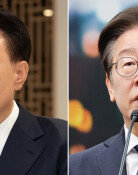Global response to the Inflation Reduction Act
Global response to the Inflation Reduction Act
Posted September. 02, 2022 08:08,
Updated September. 02, 2022 08:08

Global response to the Inflation Reduction Act
Governments and businesses around the world, including Germany, Japan, and Canada, are drawing up response to the Inflation Reduction Act of the United States, the gist of which is to provide tax credits for electric vehicles assembled in North America. These responses include investment in battery manufacturing facilities in the U.S. and facilitation of intercountry and intercompany cooperation to secure battery raw materials that are not sourced from China. Competition among major countries to receive EV subsidies under the Inflation Reduction Act is getting intensified. The IRA which has recently came into effect embodies the Biden administration’s strong resolve to create a U.S.-centered EV supply chain ranging from securing raw materials for electric car batteries to the final assembly electric vehicles.
In response to the IRA, Japanese automakers are speeding up investment for battery production in the U.S., reversing its previous stance focused on hybrid cars, which made Japan lag in securing battery supply chain in the U.S.
Toyota announced its plan to invest additional 2.5 billion dollars in the EV battery in North Carolina currently under construction, which will total up to 3.8 billion dollars if added to the previously announced 1.29 billion dollars. Honda also said that it would establish a joint battery company in the U.S. with LG Energy Solution with an investment of 4.4 billion dollars.
On Aug. 22, Germany’s Prime Minister Olaf Scholz visited Canada, where natural resources such as lithium and cobalt are abundant, and met with Canadian Prime Minister Justin Trudeau and agreed to keep close cooperation in developing natural gas and battery raw materials. On the next day, Volkswagen and Mercedes-Benz signed an MOU with the Canadian government, agreeing on cooperation in development of raw materials for EV batteries. Under the MOU, German automakers will take part in the development of the Canadian lithium mines in exchange for receiving priority in access to lithium. German Prime Minister Scholz said that the MOU is great evidence of cooperation between allies in terms of natural resources and security.
According to the IRA, from 2023, automakers have to use batteries made up of more than 40 percent of components, such as lithium, nickel, or cobalt, that are manufactured or assembled in the U.S. or countries with which the U.S. has a free trade agreement, in order to receive a half of EV subsidies, which is 3,750 dollars.
Volkswagen has begun operating an EV plant in Tennessee since late July, immediately after the disclosure of the IRA, and is ready to deliver cars to customers, thereby meeting the requirements for EV subsidies in the fourth quarter.
Canada has been arguing through high-level talks, since the introduction of the Build Back Better Act back in last October, which is a former version of the IRA, that Canadian EV must also be recipients of the tax credits. Back then, under the BBB, which passed the House, only EVs produced in the U.S. were eligible for EV subsidies. Canada consistently demanded that the IRA’s EV tax credit requirement be expanded from U.S.-made batteries to batteries made in North America. Right After the North American meeting in November 2021, Reuters cited a government official and said Prime Minister Trudeau’s first agenda in the Canada-U.S. meeting was an expansion of tax credits for electric vehicles from simply American-based manufacturers to those manufactured in North America.
Hyundai Motor, which was excluded from EV subsidies, because it does not yet have a factory in the U.S., is in a crisis mode. Hyundai Motor Chairman Chung Eui-sun visited the U.S. on Aug. 23, and postponed return to South Korea. Chung is said to directly oversee the company’s operation in the North American region, with his aids keeping him up to date with regard to the response to the IRA. Hyundai Motor’s plan is to primarily focus on making sure that the construction of the EV production facility in Georgia, U.S. proceeds as planned. The company is also reviewing measures to cut down a price increase as much as possible to prevent sales volume of Hyundai and Kia Motor’s electric vehicles from going down and raise incentives for car dealers in the U.S. to maintain price competitiveness.
Gun-Huk Lee gun@donga.com







